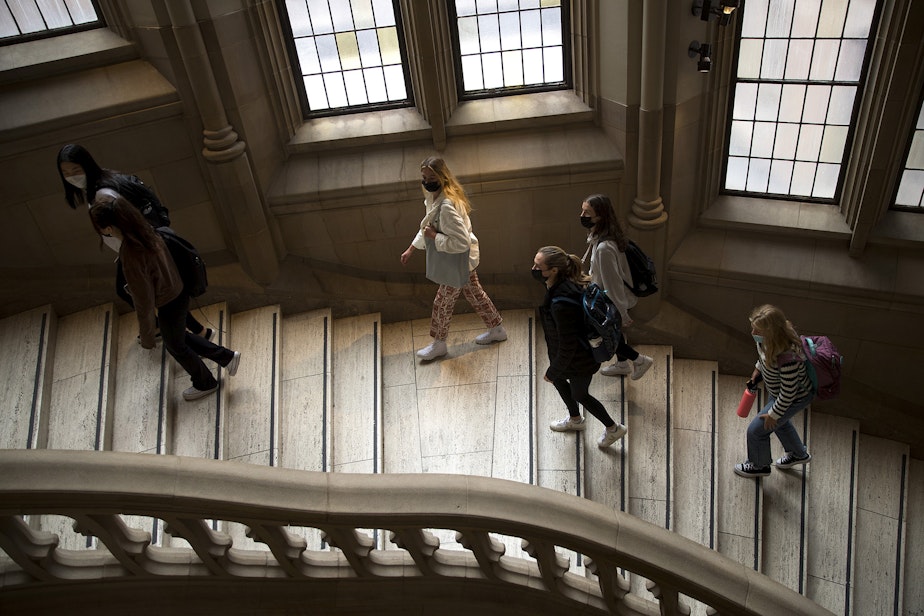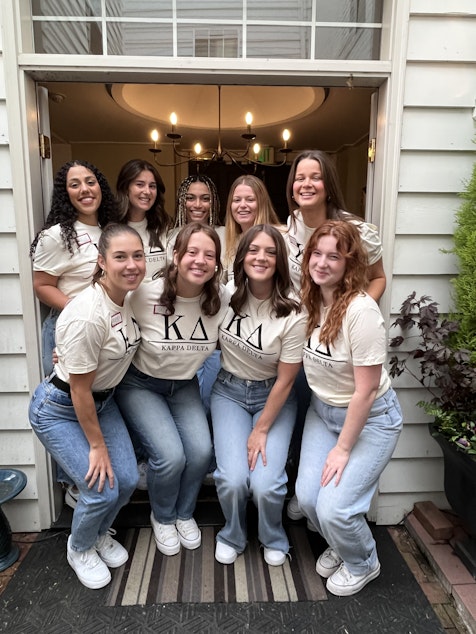Fall semester is underway. That's when most campus sexual assaults happen

The window between the start of fall semester and Thanksgiving break is what advocates against sexual violence refer to as the "red zone." More than half of all campus sexual assaults occur during this period, according to the sexual assault advocacy group Shattering the Silence.
The organization says that of women who report being the victim of a sexually coercive experience on campus, 84% say it happened during their first four semesters.
Sorority members are particularly vulnerable to being sexually assaulted on campus. The National Institute of Justice reports that they make up 25% of campus sexual assault victims.
Taytem Raynor is the president of the University of Washington's Kappa Delta Sorority chapter. She said it was jarring to hear about the high rates of sexual assault on campus, but the numbers don’t necessarily surprise her.
Raynor spoke to KUOW's Angela King about steps her sorority is taking to educate students about sexual assault.

Raynor started college at the University of Washington as a political science and Chinese major in the fall of 2020. She said she didn't receive any formal sexual assault training because of a moratorium that banned Greek members from participating in in-personal social events, due to the pandemic. The concern was that offering sexual assault training would encourage students to break the social moratorium.
Raynor said the lack of training left her sisters “lost and confused.”
Sponsored
But now that the moratorium is over, Raynor is making an effort to educate new sorority members about sexual assault.
“I really wanted to make sure that the new members had access to a ton of resources and trainings, so they knew how to stay safe when going out, and didn't feel lost or confused,” she said.
READ: DIY rape kits are gaining popularity on college campuses. But are they reliable?
These efforts are especially important, Raynor added, now that students are back on campus and in the so-called “red zone,” when sexual assault is most likely to occur on campus.
Raynor said she is especially worried about this year's "red zone” because students have been learning remotely for nearly three years. Additionally, they "might not have experience with going out or being super social in large groups," she said.
Raynor said she wants to make sure incoming students are ready "for anything that comes their way."
Sponsored
To help with this, the Kappa Delta Sorority frequently has group discussions about how to keep each other safe. During these talks, upperclassmen give advice like using the “buddy system” when going out, and share personal experiences and lessons they say they had to learn the "hard way,” Raynor said.
Discussions about sexual violence are happening among fraternity brothers, too.
According to Shattering the Silence, male college students between ages 18 and 24 are 78% more likely than non-students of the same age group to be a victim of rape or sexual assault.
Raynor said Greek organizations collectively are trying to address the issue of sexual assaults and the "red zone" through an organization called Greeks Take Action. The group, which is made up of representatives from both sororities and fraternities, focuses on ending the cycle of sexual violence in the Greek System, according to its website.
"It's super awesome to see the community coming together and try to stop this cycle," Raynor said, adding that it will take some time to put an end to the high numbers of sexual assaults on campus.
Sponsored
If you have experienced sexual assault and need support, you can call the 24-hour National Sexual Assault Telephone Hotline at 800-656-HOPE (800-656-4673). There is also an online chat option.





